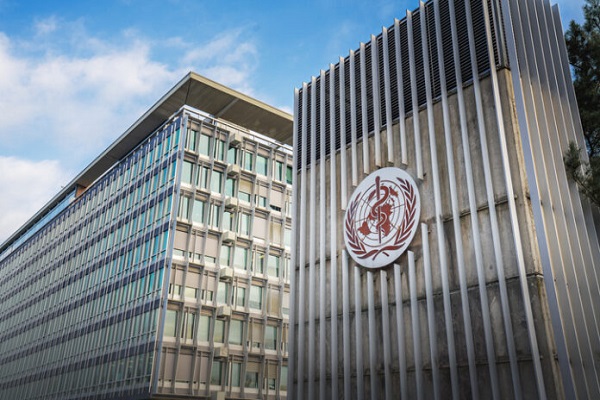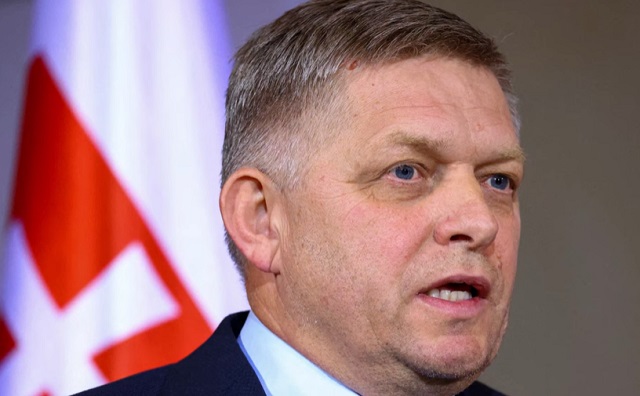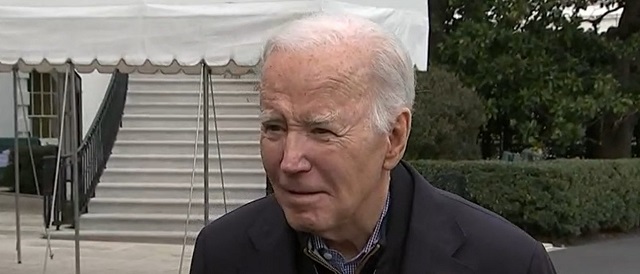Great Reset
Assisted suicide activists should not be running our MAID program

From the MacDonald Laurier Institute
By Shawn Whatley
We should keep the right-to-die foxes out of the regulatory henhouse
The federal government chose a right-to-die advocacy group to help implement its medical assistance in dying legislation. It’s a classic case of regulatory capture, otherwise known as letting the foxes guard the henhouse.
In the “Fourth annual report on Medical Assistance in Dying in Canada 2022,” the federal government devoted several paragraphs of praising to the Canadian Association of MAID Assessors and Providers (CAMAP).
“Since its inception in 2017, (CAMAP) has been and continues to be an important venue for information sharing among health-care professionals and other stakeholders involved in MAID,” reads the report.
With $3.3 million in federal funding, “CAMAP has been integral in creating a MAID assessor/provider community of practice, hosts an annual conference to discuss emerging issues related to the delivery of MAID and has developed several guidance materials for health-care professionals.”
Six clinicians in British Columbia formed CAMAP, a national non-profit association, in October 2016. These six right-to-die advocates published clinical guidelines for MAID in 2017, without seriously consulting other physician organizations.
The guidelines educate clinicians on their “professional obligation to (bring) up MAID as a care option for patients, when it is medically relevant and they are likely eligible for MAID.” CAMAP’s guidelines apply to Canada’s 96,000 physicians, 312,000 nurses and the broader health-care workforce of two-million Canadians, wherever patients are involved.
The rise of CAMAP overlaps with right-to-die advocacy work in Canada. According to Sandra Martin, writing in the Globe and Mail, CAMAP “follow(ed) in the steps of Dying with Dignity,” an advocacy organization started in the 1980s, and “became both a public voice and a de facto tutoring service for doctors, organizing information-swapping and self-help sessions for members.”
Prime Minister Justin Trudeau tapped this “tutoring service” to lead the MAID program. CAMAP appears to follow the steps of Dying with Dignity, because the same people lead both groups. For example, Shanaaz Gokool, a current director of CAMAP, served as CEO of Dying with Dignity from 2016 to 2019.
A founding member and current chair of the board of directors of CAMAP is also a member of Dying with Dignity’s clinician advisory council. One of the advisory council’s co-chairs is also a member of Dying with Dignity’s board of directors, as well as a moderator of the CAMAP MAID Providers Forum. The other advisory council co-chair served on both the boards of CAMAP and Dying with Dignity at the same time.
Overlap between CAMAP and Dying with Dignity includes CAMAP founders, board members (past and present), moderators, research directors and more, showing that a small right-to-die advocacy group birthed a tiny clinical group, which now leads the MAID agenda in Canada. This is a problem because it means that a small group of activists exert outsized control over a program that has serious implications for many Canadians.
George Stigler, a Noble-winning economist, described regulatory capture in the 1960s, showing how government agencies can be captured to serve special interests.
Instead of serving citizens, focused interests can shape governments to serve narrow and select ends. Pharmaceutical companies work hard to write the rules that regulate their industry. Doctors demand government regulations — couched in the name of patient safety — to decrease competition. The list is endless.
Debates about social issues can blind us to basic governance. Anyone who criticizes MAID governance is seen as being opposed to assisted death and is shut out of the debate. At the same time, the world is watching Canada and trying to figure out what is going on with MAID and why we are so different than other jurisdictions offering assisted suicide.
Canada moved from physician assisted suicide being illegal to becoming a world leader in organ donation after assisted death in the space of just six years.
In 2021, Quebec surpassed the Netherlands to lead the world in per capita deaths by assisted suicide, with 5.1 per cent of deaths due to MAID in Quebec, 4.8 per cent in the Netherlands and 2.3 per cent in Belgium. In 2022, Canada extended its lead: MAID now represents 4.1 per cent of all deaths in Canada.
How did this happen so fast? Some point to patients choosing MAID instead of facing Canada’s world-famous wait times for care. Others note a lack of social services. No doubt many factors fuel our passion for MAID, but none of these fully explain the phenomenon. In truth, Canada became world-famous for euthanasia and physician-assisted suicide because we put right-to-die advocates in charge of assisted death.
Regardless of one’s stance on MAID, regulatory capture is a well-known form of corruption. We should expect governments to avoid obvious conflicts of interest. Assuming Canadians want robust and ready access to MAID (which might itself assume too much), at least we should keep the right-to-die foxes out of the regulatory henhouse.
Shawn Whatley is a physician, a Munk senior fellow with the Macdonald-Laurier Institute and author of “When Politics Comes Before Patients: Why and How Canadian Medicare is Failing.”
Great Reset
Biden Administration Eager to Sign WHO Pandemic Treaty

From Heartland Daily News
By Bonner Russell Cohen, Ph.D.
The Biden administration signaled its support for the World Health Organization’s (WHO) new pandemic treaty expected to be finalized at its World Health Assembly in Geneva, Switzerland, the final week of May.
Pamela Hamamoto, the State Department official representing the United States at the meeting, stated that “America is committed to signing the treaty that will ‘build a stronger global health structure,’” wrote John Tierney, a senior fellow at the Manhattan Institute and a contributing editor, in the City Journal.
Adoption of a legally binding pact governing how countries around the world are to respond to future outbreaks like the recent COVID-19 pandemic has been the goal of WHO-directed negotiations since 2021. The WHO, a United Nations-sponsored organization, came under sharp criticism for its handling of the coronavirus.
On May 8, attorneys general from 22 states sent President Biden a letter saying they oppose the accords which will turn the WHO into the “world’s governor of public health.” The letter says giving the WHO such authority violates the U.S. Constitution, and could lead to censorship of dissenting opinions, undermine Constitutional freedoms, and give the WHO power to declare any “emergency” besides health including climate change, gun violence, and immigration.
Missteps on COVID-19
In a post on Twitter (now X) on January 14, 2020, the WHO stated: “Preliminary investigations conducted by the Chinese authorities have found no clear evidence of human-to-human transmission of the novel #coronavirus (2019-nCoV) identified in #Wuhan, #China.”
Two weeks later, on January 30, 2020, WHO’s Emergency Committee issued a Public Health Emergency of International Concern (PHEIC), stating, “The Committee emphasized that the declaration of a PHEIC should be seen in the spirit of support and appreciation of China, its people, and the actions China has taken on the front lines of this outbreak, with transparency and, it is to be hoped, success.”
The WHO’s initial investigation into the origins of COVID-19 concluded it was improbable that the virus resulted from experiments at the Wuhan Institute of Virology, though it later acknowledged that it could have come from a lab leak at Wuhan. The WHO’s investigation, which was thwarted by Chinese officials, ultimately reached no conclusion. President Trump announced the United States’ withdrawal from the WHO, a decision reversed by President Joe Biden on January 20, 2021.
More Smoke and Mirrors
Further undermining the WHO’s credibility in setting policies on managing a future pandemic, the group decided to include Peter Daszak, president of the New York-based EcoHealth Alliance, in its initial investigation into the origins of COVID-19.
Daszak and EcoHealth Alliance prominently featured in an investigation by the U.S. House Select Subcommittee on the Coronavirus Pandemic into the government’s funding and lack of oversight of gain-of-function research at the Wuhan lab, for which EcoHealth received grants from the National Institute of Allergy and Infectious Diseases and the National Institutes of Health.
In an interim report released on May 1, 2024, the subcommittee said there is “significant evidence that Daszak violated the terms of the NIH grant awarded to EcoHealth. Given Dr. Daszak’s apparent contempt for the American people and disregard for legal reporting requirements, the Select Subcommittee recommends the formal debarment of and a criminal investigation into EcoHealth and its President.”
After the release of the report, U.S. Rep. Tom Emmer (R-MN) told the Washington Examiner, “The World Health Organization covered up the Chinese Communist Party’s role in developing and spreading COVID-19 and has since failed to hold them accountable for the global pandemic that killed millions, upended our daily lives, and destroyed thousands of small businesses.”
Public Fed Up
The WHO’s shaky record on COVID, including its close ties to China and Peter Daszak, have taken a toll on the public’s willingness to accept its leadership in any future pandemics.
A poll conducted by McLaughlin & Associates for the Center for Security Policy, released on April 17, found that 54.6 percent of likely voters oppose tying the United States to a WHO pandemic treaty, and just 29.0 percent favor such a move.
Agreements Bypass Congress
While providing few details, at the World Economic Forum in Davos, Switzerland in January, WHO Director General Tedros Ghebreyesus said, “The pandemic agreement can bring all the experience, all the challenges we have faced and all the solutions into one. That agreement could help us prepare for the future in a better way.”
The “treaty” the Biden administration is eager to sign will likely be an executive agreement, like the 2015 Paris Climate Agreement, which was not presented to the U.S. Senate for ratification but contained “commitments” President Barack Obama pledged to honor.
Also in the works in Geneva are amendments to International Health Regulations, which Congress would not approve or disapprove.COVID
WHO’s Power Grab
Sen. Ron Johnson (R-WS), sent a letter to President Biden signed by all 49 Republican senators, expressing their concern about the powers that could be handed to WHO, on May 2.
“Some of the over 300 proposals for amendments made by member states would substantially increase the WHO’s emergency powers and constitute intolerable infringements upon U.S. sovereignty,” the letter states.
Craig Rucker, president of the Committee for a Constructive Tomorrow (CFACT), who has attended UN-sponsored conferences around the world for over 30 years, says the WHO is a destructive force.
“WHO’s performance during COVID-19 was a lethal combination of incompetence and dishonesty,” said Rucker. “The organization failed to protect public health and went to extraordinary lengths to cover up China’s role in fostering gain-of-function research at the Wuhan lab. Ratification of any WHO pandemic treaty would be nothing short of a travesty.”
Bonner Russell Cohen, Ph.D. ([email protected]) is a senior fellow at the National Center for Public Policy Research.
Business
ESG Puppeteers

From Heartland Daily News
By Paul Mueller
The Environmental, Social, and Governance (ESG) framework allows a small group of corporate executives, financiers, government officials, and other elites, the ESG “puppeteers,” to force everyone to serve their interests. The policies they want to impose on society — renewable energy mandates, DEI programs, restricting emissions, or costly regulatory and compliance disclosures — increase everyone’s cost of living. But the puppeteers do not worry about that since they stand to gain financially from the “climate transition.”
Consider Mark Carney. After a successful career on Wall Street, he was a governor at two different central banks. Now he serves as the UN Special Envoy on Climate Action and Finance for the United Nations, which means it is his job to persuade, cajole, or bully large financial institutions to sign onto the net-zero agenda.
But Carney also has a position at one of the biggest investment firms pushing the energy transition agenda: Brookfield Asset Management. He has little reason to be concerned about the unintended consequences of his climate agenda, such as higher energy and food prices. Nor will he feel the burden his agenda imposes on hundreds of millions of people around the world.
And he is certainly not the only one. Al Gore, John Kerry, Klaus Schwab, Larry Fink, and thousands of other leaders on ESG and climate activism will weather higher prices just fine. There would be little to object to if these folks merely invested their own resources, and the resources of voluntary investors, in their climate agenda projects. But instead, they use other people’s resources, usually without their knowledge or consent, to advance their personal goals.
Even worse, they regularly use government coercion to push their agenda, which — incidentally? — redounds to their economic benefit. Brookfield Asset Management, where Mark Carney runs his own $5 billion climate fund, invests in renewable energy and climate transition projects, the demand for which is largely driven by government mandates.
For example, the National Conference of State Legislatures has long advocated “Renewable Portfolio Standards” that require state utilities to generate a certain percentage of electricity from renewable sources. The Clean Energy States Alliance tracks which states have committed to moving to 100 percent renewable energy, currently 23 states, the District of Columbia, and Puerto Rico. And then there are thousands of “State Incentives for Renewables and Efficiency.”
Behemoth hedge fund and asset manager BlackRock announced that it is acquiring a large infrastructure company, as a chance to participate in climate transition and benefit its clients financially. BlackRock leadership expects government-fueled demand for their projects, and billions of taxpayer dollars to fund the infrastructure necessary for the “climate transition.”
CEO Larry Fink has admitted, “We believe the expansion of both physical and digital infrastructure will continue to accelerate, as governments prioritize self-sufficiency and security through increased domestic industrial capacity, energy independence, and onshoring or near-shoring of critical sectors. Policymakers are only just beginning to implement once-in-a-generation financial incentives for new infrastructure technologies and projects.” [Emphasis added.]
Carney, Fink, and other climate financiers are not capitalists. They are corporatists who think the government should direct private industry. They want to work with government officials to benefit themselves and hamstring their competition. Capitalists engage in private voluntary association and exchange. They compete with other capitalists in the marketplace for consumer dollars. Success or failure falls squarely on their shoulders and the shoulders of their investors. They are subject to the desires of consumers and are rewarded for making their customers’ lives better.
Corporatists, on the other hand, are like puppeteers. Their donations influence government officials, and, in return, their funding comes out of coerced tax dollars, not voluntary exchange. Their success arises not from improving customers’ lives, but from manipulating the system. They put on a show of creating value rather than really creating value for people. In corporatism, the “public” goals of corporations matter more than the wellbeing of citizens.
But the corporatist ESG advocates are facing serious backlash too. The Texas Permanent School Fund withdrew $8.5 billion from Blackrock last week. They join almost a dozen state pensions that have withdrawn money from Blackrock management over the past few years. And last week Alabama passed legislation defunding public DEI programs. They follow in the footsteps of Florida, Texas, North Carolina, Utah, Tennessee, and others.
State attorneys general have been applying significant pressure on companies that signed on to the “net zero” pledges championed by Carney, Fink, and other ESG advocates. JPMorgan and State Street both withdrew from Climate Action 100+ in February. Major insurance companies started withdrawing from the Net-Zero Insurance Alliance in 2023.
Still, most Americans either don’t know much about ESG and its potential negative consequences on their lives or, worse, actually favour letting ESG distort the market. This must change. It’s time the ESG puppeteers found out that the “puppets” have ideas, goals, and plans of their own. Investors, taxpayers, and voters should not be manipulated and used to climate activists’ ends.
They must keep pulling back on the strings or, better yet, cut them altogether.
Paul Mueller is a Senior Research Fellow at the American Institute for Economic Research. He received his PhD in economics from George Mason University. Previously, Dr. Mueller taught at The King’s College in New York City.
Originally posted at the American Institute for Economic Research, reposted with permission.
-

 Alberta2 days ago
Alberta2 days agoFortis et Liber: Alberta’s Future in the Canadian Federation
-

 COVID-191 day ago
COVID-191 day agoCOVID Lab Leak: Over four later, EcoHealth Alliance funding is finally suspended
-

 Community1 day ago
Community1 day agoThe Grand Opening is TODAY!
-

 Crime2 days ago
Crime2 days agoSlovakian prime minister who opposed WHO Pandemic Treaty shot in assassination attempt
-

 COVID-191 day ago
COVID-191 day agoNIH Quietly Altered Definition For Gain-Of-Function Research On Its Website, Former Fauci Aide Confirms
-

 conflict2 days ago
conflict2 days agoWhite House Reportedly Worried About Russia’s Sudden Momentum Months After Biden Declared Putin ‘Already Lost’ War
-

 Censorship Industrial Complex2 days ago
Censorship Industrial Complex2 days agoJim Jordan Exposes Biden’s Censorship-Industrial Complex
-

 Business1 day ago
Business1 day agoESG Puppeteers




